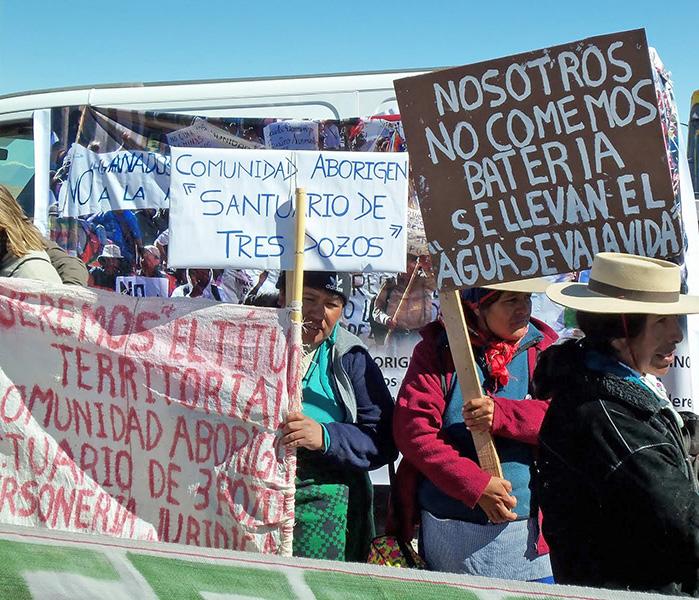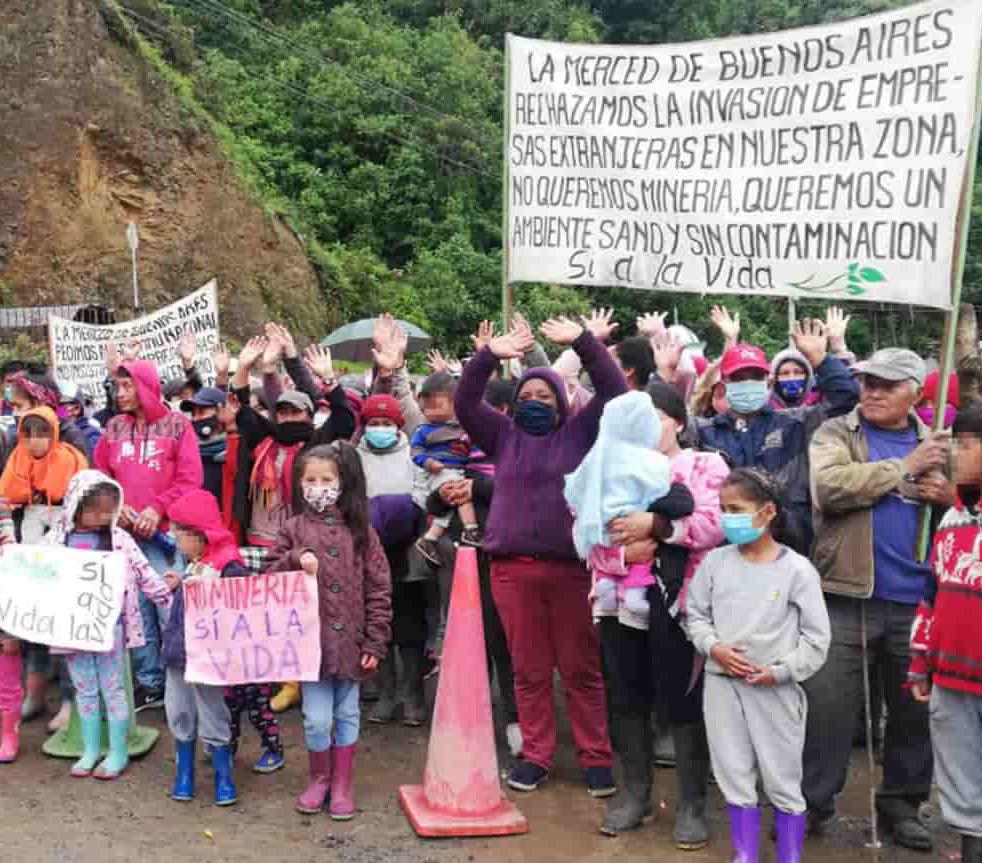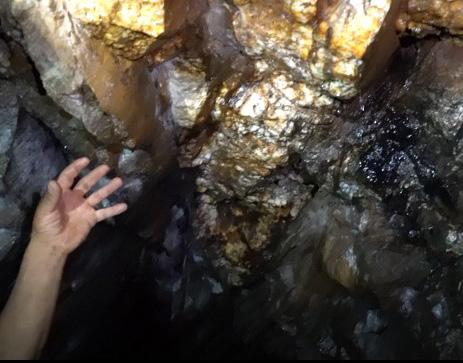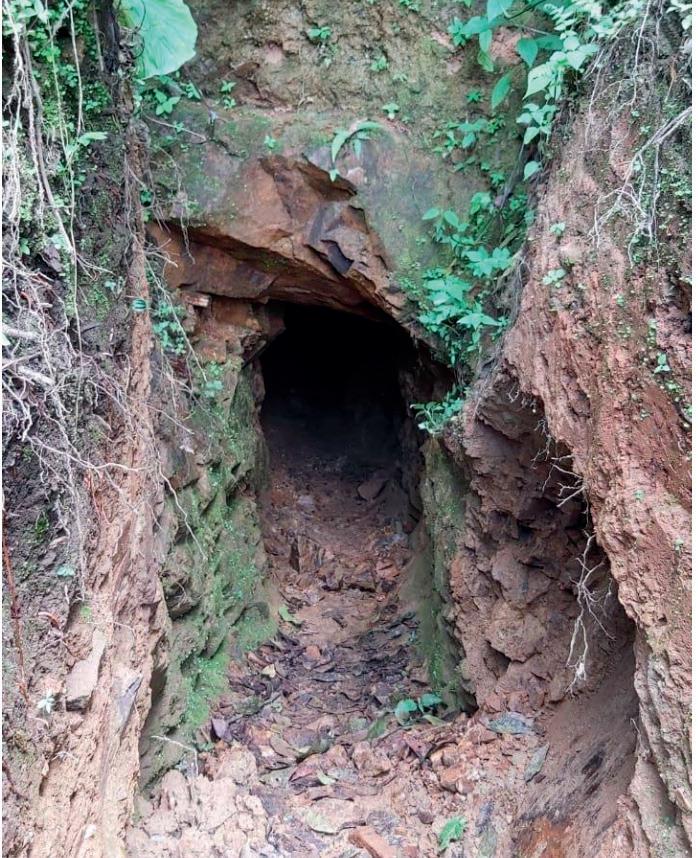
3 minute read
Popular Resistance as an Act of Defiance in the Fight for Sustainable Development


Advertisement
by Cristina Fugatti Extract from the research thesis “La resistenza popolare un atto per lo sviluppo sostenibile - Caso studio: parrocchia rurale di Pacto, Ecuador”.
The process of exploitation of natural resources in Latin America has been going on for more than 500 years, but over the last decade it has undergone a notable acceleration. This process is part of the development of a globalized economy, based on constant growth, in which the riches of the territory and natural resources are exploited in an unsustainable way. Institutions such as the World Bank have proclaimed that the sale of these riches is the best way for Latin American countries to alleviate poverty, as the opportunities offered by the market can be exploited to obtain good prices for the raw materials. However, the transnational corporations are the main promoters and beneficiaries of this capitalist economic model, which has been imposed on South American countries as a point of reference to aspire to. In this dominant view, nature is only considered a precious commodity.
However, this concept differs strongly from a broader point of view in Latin America, where cultural and spiritual values linked to nature occupy a central place. Nature manifests itself as a structure that gives meaning to existence and is the source of sustenance for millions of people. Hence, the natural environment is not a luxury, but fundamental for the survival and development of future generations. Given the circumstances, the people who oppose this dominant view are considered subversive by the authorities. Protests and resistance against this method of exploitation of the natural resources have been systematically criminalized. Communities and leaders in Guatemala, Honduras, Mexico, Colombia, Peru, Ecuador, Bolivia and Chile have denounced the exploitation of natural resources, land and even the violation of human rights by the states, often risking their own life. In these countries, access to wealth is often achieved through force, corruption and illegal actions, whereas local populations and communities are left unpro - tected. However, the unlimited access to land, water, food, forests and biodiversity is being questioned and this causes severe social conflict. Therefore, the exploitation of nature does not only have an ecological and economic dimension, but it has become a source of serious socio-political issues. In many countries, national legislation has been changed to facilitate the exploitation of natural resources and to exercise control. These adjustments to the legistlative framework form the basis of a wave of concessions for the exploitation of resources, which were mostly granted to transnational corporations. For the governments of these countries, this strategy is economically interesting, but for the communities and the environment it has catastrophic consequences. The impact of this indiscriminate exploitation is growing and the damage is becoming irreversible.
In the wave of the economic liberalization of recent decades, many governments in Latin America have claimed that the nationalization of natural wealth has positive effects on the local population and helps the redistribution of income. In his speech on the development of the mining sector, Rafael Correa, the former president of Ecuador, maintained that mining would increase the country’s GDP by reducing poverty, offering opportunities for economic development, industrialization and employment. However, recent developments have shown that the application of this model has not only increased the gap between rich and poor, but indeed lead to further underdevelopment. Not only has poverty increased, but the chances of getting out of it have decreased considerably.
Furthermore, the environmental crisis clearly shows the limits of the Western development model and the impossibility of its generalization for all humanity, as the whole planet is put at risk. Therefore, a new approach is urgently needed to raise awareness about the environmental and social consequences of these practices.
In recent years, Latin America has been hit by a wave of strong mobilizations and forms of resistance to the privatisation and exploitation of natural resources in defence of the territory and its biological and cultural diversity. Rural movements composed mainly of indigenous and peasant peoples are ready to defend nature as well as local and global resources as the common good of humanity, resisting the ideology derived from economic globalization. Mobilizations that emerge on a local scale are often sustained by other activists, such as environmental groups, trade unions and consumer groups. By doing so, they join global campaigns in which a common language and a repertoire of strategies are shared that have emerged as unconventional styles of political participation. Currently, resistance represents the strongest weapon for the defence of rights. It is generally silent, without media attention, and frequently manifests itself in the midst of quite conflicting scenarios of criminalization of protest.

To conclude, the exploitation of resources has an immense impact on the environment, especially in rural areas. However, it is essential to involve the urban population as well and raise awareness to these issues, because it is their interest, such as food supply, health and housing, which are at risk. The use of different forms of communication on a regional, national and international level can act as a lever and sounding board to spread the demands of the affected communities and help achieve the necessary political participation. Advocacy initiatives, popular consultations and direct democracy are necessary actions to attract as much support as possible in order to influence decision-making spheres.









